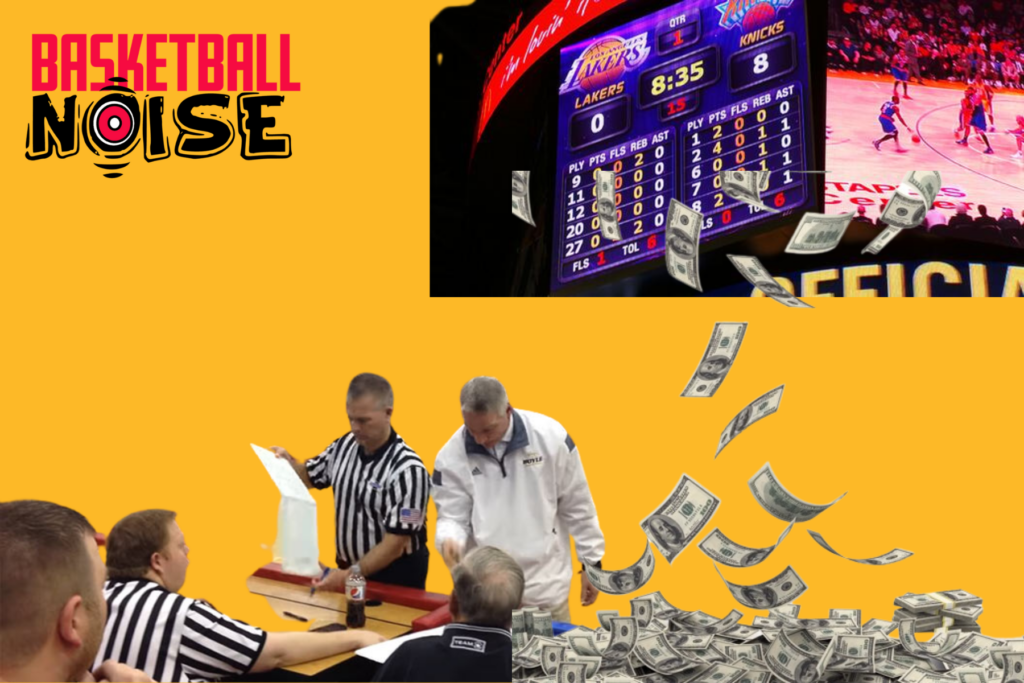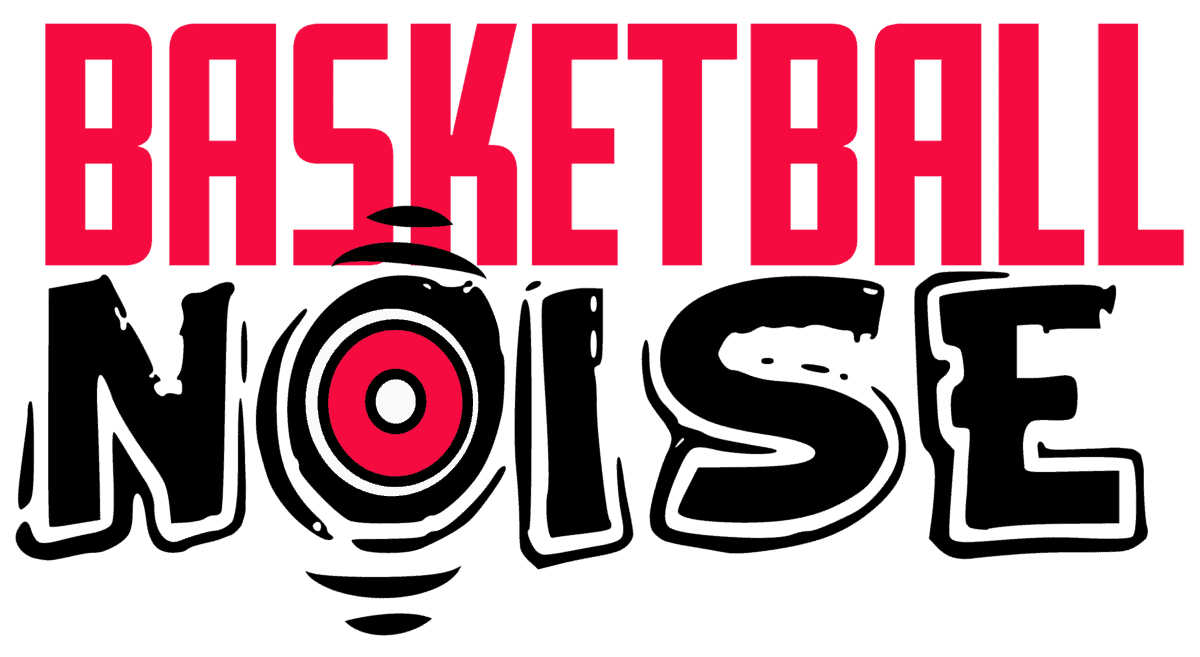If you’re the basketball fan that’s stats-obsessed, then you are familiar with the box score. The box score is the most basic yet most essential statistical tracker that is used in the NBA. It records things like points scored, assists, rebounds, and more. But who is responsible for tracking these stats, and how much do they get paid in relation to how valuable their role is to the game?
How much does an NBA scorekeeper make? Being an NBA scorekeeper is a part-time position. Scorekeeping for one game earns a scorekeeper around $50 (reported figure as of 2018). Scorekeepers are usually employed by teams, and most of the time only work home games. If a scorekeeper works 41 games (the number of home games in a regular NBA season), they stand to make $2,050. Scorekeepers do receive other benefits, such as free tickets to games.

What are the responsibilities of an NBA scorekeeper?
An NBA scorekeeper is responsible for tracking elements of the game. These elements are mostly what you find on a box score: points, rebounds, assists, blocks, steals, free throws, fouls, and so on. NBA scorekeepers need to be able to correctly identify what is occurring on the court and accurately record them as statistics. It requires attention to detail, focus, and a good knowledge of the game of basketball and its rules.
Scorekeeping in the NBA is a crew of four. Two of the scorekeepers are “callers”; they call out whenever a stat needs to be recorded: for example, if a player scores, callers call out which player scored (using numbers, not names), who assisted the scorer, how many points, etc. The other two scorekeepers are known as “inputters”: the primary inputter inputs the stats into a computer program that resembles a basketball court, while the secondary inputter reviews the inputted stats. The scorekeeping crew is connected to the main referee center in New Jersey, where the scorekeeping crew is being reviewed.
What compensation and benefits do NBA scorekeepers receive?
The direct financial compensation for scorekeeping is $50 a game. The sum is quite low, especially compared to the salaries of NBA officials, and so it constitutes mostly very passionate fans looking for a part-time gig. Other compensation includes two free tickets to the game, usually given to friends and family.
Despite the small take-home pay, scorekeepers can get a few unofficial benefits. Scorekeepers get the best seats in the house without having to pay exorbitant ticket prices, and are able to see games happen in front of their very eyes. It also gives them access to the behind-the-scenes in the franchise as well as the on-court with players and coaches. The position has a low turnover rate: once scorekeepers manage to get a hold of the position, they hold on to it for many years at a time.
What are the controversial elements of being an NBA scorekeeper?
Because scorekeepers are employed by specific teams, rather than by the league, there is an element of bias present in scorekeeping. Most of the bias comes when recording assists and blocks, while there is a smaller degree of bias in steals and rebounds. The bias arises from the subjectivity involved in designating an assist or block; for example, what constitutes an assist? Some scorekeepers may adjudge an assist to be a pass directly resulting in a score, while other scorekeepers may deem the final pass before any score (regardless of the time eclipsed) as an assist.
Various studies have found that there is a discrepancy between scorekeeping for a team at home games compared to away games. For example, teams at home games have been found to have more assists than at away games, and this trend is also relevant to other statistics such as blocks and rebounds. The trends are also mostly positive, that scorekeepers are more likely to award statistics, rather than not award them.
The most egregious of scorekeeping bias (or rather, deliberate scorekeeping discrepancy) came in a 1997 game between the then-Vancouver Grizzlies and the Los Angeles Lakers. In that game, Nick Van Exel, a guard for the Los Angeles Lakers, was awarded 23 assists, one short of the Lakers franchise record set by Magic Johnson. In retrospect, many of Van Exel’s assists were very generously awarded, so much so that the scorekeeper came out years later and admitted to doing so because he was disgruntled as a scorekeeper. The scorekeeper also alluded to the fact that “stat fudging” was not a very uncommon occurrence during that era.
Why may scorekeeping bias be present, and why, in the eyes of many, has the league not come down hard on it? Simply because scorekeeping bias doesn’t have an impact on the result of the game itself. Bias is . It may also be for marketing purposes: a player getting a triple-double is more newsworthy and draws more attention than if the player was just short of it. It may also be a ploy to create and contribute to league storylines. However, there hasn’t been any direct evidence linking to this: however, it is quietly agreed upon that positively boosting statistics is only beneficial to the league and others, and no real consequences in return.
In response to larger complaints about refereeing, the NBA has enforced more real-time and post-game reviews of referees, and this includes scorekeeping crews. The NBA also provides scorekeepers with training, in order to reduce discrepancies in scorekeeping across the league. Teams are also impartial when it comes to dealing with their scorekeeping crews as well.
There’s not a lot of money involved in being a scorekeeper, but it does give you excellent access to NBA games, players, and teams. On the flipside, the work of a scorekeeper is vital and not as black-and-white as it may seem to those who are unfamiliar with the responsibilities of a scorekeeper. It is also why many believe that there is a degree of scorekeeping bias present in the league. As long as the NBA maintains manual scorekeeping to a degree, scorekeepers will stick around, but don’t be surprised to see if that changes in the future.
